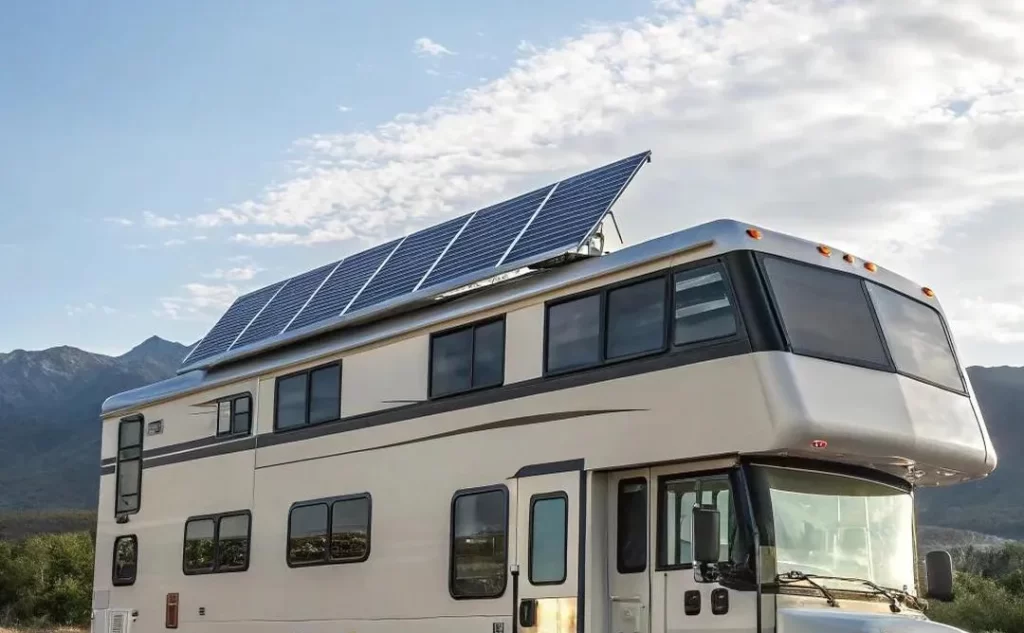Is a High-Frequency Inverter Enough for Your RV?
When it comes to powering your RV, choosing the right inverter is crucial for a comfortable and hassle-free experience on the road. One common question among RV enthusiasts is: Is a high-frequency inverter enough for an RV? The answer depends on your power needs, budget, and usage patterns. In this article, we’ll explore the pros and cons of high-frequency inverters for RVs and help you decide if they’re the right fit for your adventures.
What Is a High Frequency Inverter?
A high-frequency inverter is a type of power inverter that uses high-frequency switching technology to convert DC power from your RV’s batteries into AC power for your appliances. These inverters are typically lighter, more compact, and more affordable than their low-frequency counterparts. They are designed for moderate power demands and are ideal for running smaller electronics and appliances like laptops, TVs, and phone chargers.
Advantages of High-Frequency Inverters for RVs
- Cost-Effective: High-frequency inverters are generally less expensive than low-frequency models, making them an attractive option for budget-conscious RV owners.
- Lightweight and Compact: Their smaller size and lighter weight make them easy to install and ideal for RVs where space is at a premium.
- Efficiency: These inverters are highly efficient when running lighter loads, which can help conserve battery power during short trips or when using low-wattage devices.
- Quiet Operation: High-frequency inverters tend to operate more quietly, which is a bonus for those who value a peaceful environment in their RV.
Limitations of High Frequency Inverters
Despite their advantages, high-frequency inverters may not be sufficient for all RV power needs. Here are some key limitations:
- Limited Surge Capacity: High-frequency inverters struggle with handling high surge currents, which are common when starting motors in appliances like air conditioners, refrigerators, or microwaves. This can lead to tripping or reduced performance.
- Durability Concerns: These inverters are generally less robust than low-frequency models and may not withstand continuous heavy use or extreme conditions over long periods.
- Not Ideal for High-Power Appliances: If your RV is equipped with power-hungry devices such as induction cooktops, large air conditioning units, or electric water heaters, a high-frequency inverter may not provide enough consistent power.
When Is a High-Frequency Inverter Sufficient?
A high-frequency inverter can be enough for your RV if:
- You primarily use low to moderate power devices like LED lights, fans, laptops, or small kitchen appliances.
- You camp with hookups frequently and use the inverter only occasionally for boondocking or short off-grid stays.
- Your budget is limited, and you need an affordable solution for basic power conversion.
When Should You Consider a Low-Frequency Inverter?
If your RV lifestyle involves:
- Running high-power appliances regularly, such as air conditioners or microwaves.
- Extended off-grid camping where reliable and durable power conversion is essential.
- Needing a higher surge capacity to start motors without issues.
In these cases, a low-frequency inverter, though heavier and more expensive, may be a better investment for long-term reliability and performance.
Tips for Choosing the Right Inverter for Your RV
- Calculate Your Power Needs: Make a list of the appliances you plan to run and their wattage requirements. Ensure the inverter’s continuous and surge power ratings meet or exceed these needs.
- Consider Your Usage Patterns: If you often camp without electrical hookups, prioritize efficiency and durability. For occasional use, a high-frequency inverter might suffice.
- Check Compatibility: Ensure the inverter is compatible with your RV’s battery system (e.g., 12V, 24V, or 48V).
- Read Reviews and Seek Recommendations: Look for feedback from other RV owners who have similar power requirements and usage habits.
Conclusion
So, is a high-frequency inverter enough for your RV? It can be, depending on your specific needs and how you use your RV. For those with modest power requirements and a focus on affordability and portability, a high-frequency inverter is a practical choice. However, if you rely heavily on high-wattage appliances or plan extended off-grid adventures, investing in a low-frequency inverter might be worth the extra cost and weight. Always assess your power needs carefully and choose an inverter that aligns with your RV lifestyle for a smooth and enjoyable journey.
Table of Contents
